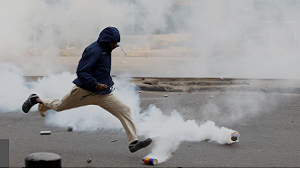This is as the country continues to navigate a political transition following the overthrow of President Bashar al-Assad late last year.
“Syria simply cannot withstand another wave of instability,” UN Deputy Special Envoy for Syria, Najat Rochdi, told the UN Security Council during a briefing in New York on Tuesday.
Rochdi said the risks of regional escalation were no longer theoretical but immediate and severe, warning that renewed conflict could derail Syria’s efforts at recovery after nearly 14 years of civil war.
Her comments come as tensions between Israel and Iran continue to mount, raising fears that Syria, long a geopolitical battleground, could once again become entangled in regional conflict. She reiterated UN Secretary-General António Guterres’s call for Israel and Iran to exercise maximum restraint and avoid further military action.
Rochdi also conveyed the growing concern of UN Special Envoy for Syria, Geir Pedersen, who has been closely monitoring regional developments and their implications for Syria’s fragile peace.
In recent months, the UN has intensified engagement with key stakeholders in Syria. Rochdi reported that Pedersen held meetings in Damascus with senior officials, including interim Foreign Minister Asaad Hassan al-Shaibani. Discussions focused on recent positive developments in international diplomacy and the urgent need to concentrate on domestic reforms and inclusive governance.
“The meetings were marked by a constructive and cooperative tone, with a shared interest in strengthening engagement with the UN across multiple sectors,” she said.
Despite some signs of diplomatic progress, Rochdi underscored that Syria’s path to stability remains precarious. She urged the international community to support the country’s transition through dialogue, reconstruction aid, and a recommitment to multilateral solutions.
--UN/ChannelAfrica--











